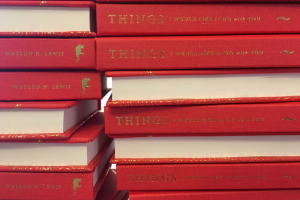{*Did you know you can write on Elephant? Here’s how—big changes: How to Write & Make Money or at least Be of Benefit on Elephant. ~ Waylon}
~
“It makes you a victim.”
These are perhaps the most potent words I’ve heard this year, and it’s a line I’ve made into a mantra, repeating it as I’m doing mental clearing, when I’m reflecting, and especially when I’m analyzing situations that would anger me and get under my skin.
A degree in politics only made stronger my obsession with power—where it comes from, how it shapes most decisions, and how it governs our lives—regardless of our own consciousness of it.
I was always most intrigued by peace-building in conflict and post-conflict zones. So, my project-based travels took me to many so-called “hardship” locations and I learned how peace is negotiated and built. I studied treaties published in old books and why they failed. I wrote essays based on first person narratives from the gaps between the field and the office. The moment I entered this world, I was introduced to conflict beyond the realm of my imagination because chaos reigns in territories of bad feelings. Peace-makers are too logical; soft was the official world.
I left the world of “soft power” over 10 years ago to deep dive into the arts, which offered much more satisfying answers than the policy world, though sadly the two worlds seem to exist in each other’s blind spots. In recent years, my focus shifted from the big stage to the personal realm—personal power and emotional security, aka our therapy bills. I started looking at family dynamics because if we can’t have peace on home-turf in our own families then how do we expect that of others, in lands governed by a completely different set of rules?
At a time where peace cannot be taken for granted, I want to make clear that the peace mentioned here is contained in the private sphere of our immediate families.
Every member of every family has sacrificed for peace. Those numbered nine on the enneagram are officially peacemakers, and fill this role more than others, while the thoughtful ones shoulder this burden more than the selfish ones, but we’ve all done it and most of us will continue to do it because we value and prefer peace over chaos. Most of us have been conditioned that it’s an honorable thing to do, so we don’t reject this idea. But after too many years making these sacrifices myself, I’m ready to reconsider, in the quest of true healing, and perhaps you should, too.
I’ve been on both the giving and receiving end of sacrifices, and for the most part, I will categorize the sacrifices into two—silent versus loud.
When sacrifices are done in silence, we make ourselves smaller; we give up something; we make concessions; we trade in our dreams and settle into the “should,” but we are really just burying a ticking time bomb if we didn’t make the sacrifices out of free will or true altruism. When sacrifices aren’t done fully altruistically, we end up burying seeds of resentment.
Other times, the sacrifices are all caps in headlines, so everybody knows to whom we owe what. Like a loudspeaker announcing a balance sheet of who sacrificed what in order for another person to have something. This is sacrifice served with a side of guilt and shame. Repetitions of this anchors toxic power dynamics that build fear instead of trust.
Regardless of how the sacrifices are made, bad feelings persist, peace is but a façade, and those who made sacrifices don’t end up truly feeling liberated. If peace isn’t liberating, then what have we negotiated?
Could peace and healing be rooted in different processes? Too often, I hear that people don’t want to “be involved in difficult conversations” because they are afraid to upset the peace. Could it be that we have our definitions wrong? Could it be that we have been conditioned to appeal to a certain power dynamic and call this “peace”?
When we turn a blind eye to the pain that needs to be addressed, is this what we call “sacrificing for peace”? Do we bypass healing this way, or is healing the cost for this shortcut to a tidier place?
What and who do these sacrifices strengthen? If we are not made stronger by these sacrifices, then didn’t we just make ourselves the victims?
What power dynamics do the sacrifices support? Is it so that the person making the sacrifices could be justified in a position that is morally superior?
Do the sacrifices lead to a life of expansion for all? Or do they up the ante on expectations?
Do the sacrifices enable us to flourish?
Whose narratives do these sacrifices strengthen? And what role do we play in this story? Do we have agency?
Are we really regarded as the family hero? Or have we simply made ourselves a victim of unhealthy dynamics powered by fear?
Power dynamics behind closed doors are deeply complex, layered with generational trauma and convoluted further with cultural differences. This is why I made a list of provocative questions above, to perhaps help you see through the chaos of tortured feelings, because they shouldn’t be the price for peace that just isn’t.
For too long, I had been sacrificing in the name of peace, so much so that some called me “angel” while others called me “addicted to pain.” Neither are fitting labels, but somehow I did ascribe to the fact that when we sacrifice for peace, it’s an honorable thing to do. It’s not. “When you sacrifice for peace, you are not the hero; you become the victim.”
When I first heard these words, it’s like they lifted me out of a bad spell. I kept repeating these words because they make so much sense out of situations that hurt and confounded me. These words as a mantra allow me to distance myself from so many heated situations, and to consciously dissociate, to let go of the somehow ingrained need in me to fix things and make things nice and comfortable for others. These words have given me agency when I felt manipulated and put up boundaries when I couldn’t or didn’t. These words shattered the shackles I wasn’t even aware I had carried.
So, I hope they can do the same for you. Because when our assumptions are wrong, everything that flows from them are wrong. Instead of peace, this kind of sacrificing will not release but anchor conflict as a self-fulfilling prophecy, and we’ve been on the healing journey too far to be misdirected this way.
~
{Please consider Boosting our authors’ articles in their first week to help them win Elephant’s Ecosystem so they can get paid and write more.}







Read 0 comments and reply